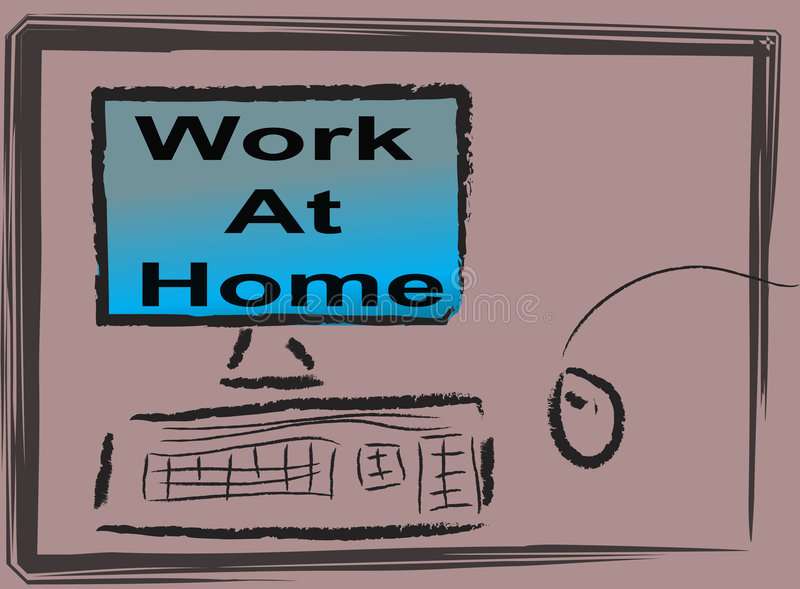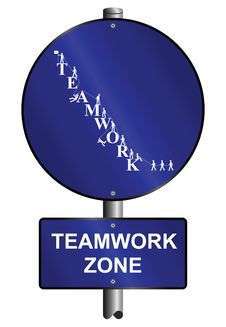
What does being a casual employee mean?
Casual workers, among all other kinds of employment, are affected most by the inconsistent workplace restrictions and lockdown rules brought by the pandemic. They are usually the first to lose their jobs when a business closes down due to economic pressure. In fact, two-thirds of the people who lost a job during the early pandemic period are casual workers. In the hope of looking after the casual workforce, the government has sought to introduce new protections for casual workers’ rights. The article “What does being a casual employee mean?” will explore the nature of casual employment and any new protections provided to casual workers.
What is a casual employee?
Section 15A of the Fair Work Act 2009 provides the definition of a casual employee as someone who makes no firm advance commitment to continuing and indefinite work to the employer. Firm advance commitment can be considered with regard to the following factors set out in s 15A(2) of the Fair Work Act 2009:
- Your employer can choose to offer you work and You have the choice to work or not
- When your employer needs you to work, you will be rostered to work
- Your employment type is described as casual
- You are entitled to casual loading or a specific pay rate unique to casual employees
A casual employee does not have an agreed pattern of work. This means that a casual employee has no consistent set days of the week that a casual employee would be required to work. Their working hours are wholly dependent on shifts being offered by their employers. They can choose to work on the hours they are rostered on or reject work. However, it does not mean that casual employees cannot have a set pattern of work hours.

How long can an employee be casual?
Casual employment while seeming to lack consistency and security, can offer flexibility to work arrangements. This is especially desirable for young people who have to work and study at the same time. In electing to work for different hours and on different days, they are able to fit in work around their busy schedules. Not to mention the perks of casual loading on top of their hourly rate to help with their financial stress. However, there are downsides to casual employment, including not having entitlements such as annual leave and paid personal leave.
Because of these benefits to some (including older employees, working mothers, and employees recovering from illness or injury). Some employees can be casual for many years. There is no time limit. This is particularly prevalent in retail, supermarket chains, and service stations.
New rules regarding conversion from casual to part-time employment
Amendments have been recently added to the Fair Work Act 2009 since March 2021, introducing new workplace entitlements and obligations employers have for casual employees. The new changes include:
- Insertion of section 125A and section 125B that deal with Casual Employment Information Statement;
- Insertion of section 15A that deals with the meaning of casual employee; and
- Insertion of Division 4A regarding casual conversion.
The new sections in clarifying the meaning of casual employee seem to be the aftermath of the Full Federal Court’s decision on Workpac Pty Ltd v Rossato [2020] FCAFC 84 where the full court left confusion and held Mr. Rossato to be a permanent employee of the company despite being engaged via casual employment engagements. This decision has been overturned by the High Court in WorkPac v Rossato & Ors [2021] HCA 23 in holding that an employee labeled as casual under an award or enterprise agreement would be casual for all purposes.
Must offer permanent employment
The third change that deals with casual conversion has sparked a lot of controversies. Under Division 4A, an employer must make an offer in writing to their casual employees to convert to full-time or part-time employment. If they have worked there for at least 12 months, during which the employee has worked on a regular pattern for 6 months. “Must” indicates that the employer has to offer the casual employee the conversion option. It is not up to the employer’s discretion to provide the offer or not. There are exceptions, however, when the employer is not obliged to make the offer under section 66C on the reasonable grounds listed as follows:
- The employee’s position will not exist in the next 12 months;
- The employee would be required to work significantly fewer hours under the offer;
- There would be a significant change to the days and times the employee is obliged to work and does not accommodate the employee’s availability;
- The offer would not comply with a recruitment or selection process required under the law.
Under section 66D of the Fair Work Act 2009, when an employee is given an offer, he or she must provide a response within 21 days. The response can be whether the worker wishes to accept the offer of conversion or decline the offer.
Similarly, a casual employee is also entitled to request an offer from the employer of conversion when certain requirements of their employment are satisfied (a period of employment for at least 12 months with 6 months under a regular pattern of work hours). The employer is obliged to accept the request unless the reasonable grounds listed above apply.

A new pathway for casual employees
The new introduction of Division 4A of the Fair Work Act 2009. Provides a new pathway for casual employees to transition their employment into a more secure type of employment. Either part-time or full-time, to have access to entitlements and leave. Casual workers than would be facing the difficult decision one year into their employment when they meet the criteria for casual conversion.
On one hand, converting from casual to part-time or full-time would allow them to gain access to paid leave. They can happily request sick leave or take days off for holidays without having the fear of losing income or losing their jobs. In the alternative, they will lose the privilege of casual loading. Also not have to make firm and advanced commitments to their employment. This means that they will have consistent working hours on set days. This is reasonable, considering that they will only be eligible for the conversion if they have been working on a regular pattern for at least 6 months. However, losing the casual employee privilege would mean that employees generally have less flexibility guaranteed for their work schedule. They can no longer reject their shifts if they are rostered on.
Not everybody wants to be a permanent employee
People who work multiple jobs or university students may particularly be disadvantaged by this conversion. Losing casual loading also equates to a reduction in income, even though working hours for the employee remain the same. Some may have to pick up extra hours to satisfy their ends meet without casual loading. Hence the conversion would also not be favourable for those.
Even though casual employees are not obliged to convert to part-time or full-time employment under the new rules. They may nonetheless face external pressure in accepting the conversion offer. Casual employees are generally in a weaker bargaining position compared to their employers. Some may feel like they are obliged to accept or reject the offer to please their employers in the fear of losing their jobs.

Security of employment can bring benefits.
For others, the conversion to a more secure type of employment may be beneficial. However, the opportunity to convert is denied by their employers. Investigation shows that six months after the implementation of the new casual conversion law, only approximately 1% of Australian universities’ casual staff had been converted.
After requesting casual conversion, university staff was hit with a generic response that the university “determined that there are reasonable grounds (in accordance with the legislation) not to offer to convert [their] role to a permanent position”. It seems like regardless of the legislative changes, the employer can still try to twist around with the legislation by denying conversion and having to offer entitlements to their employees.
On another hand, the protection offered by the new amendments to the Fair Work Act is restricted and only available to certain casual employees –they have to have worked for a minimum period and have to have a regular working pattern for a fixed period. Casual employees that do not meet both criteria listed in the Act are still left unprotected as they are not eligible to convert to permanent employment.
The reform that aims to provide more security to casual employment can still create loopholes for employers to evade their legal obligation to convert casual employees to permanent ones. Or in some extreme circumstances, an employer may try to terminate the casual employment right before the employee would becomes eligible for the conversion. They can continue to hire short-term casual Avoiding the legislative requirement to offer conversion, which in turn prompts an even higher turnover rate of the casual workforce.
This legislation may have unintended consequences.
Can you terminate a casual employee?
It’s a truly daily hire situation, yes the employer can terminate you at any time. If it’s less than 6 months of service, or 12 months if it’s a small business under the Fair work act (less than 15 employees) they can be dismissed, regardless if casual or permanent. This is referred to as the qualifying period. If the employee is out of these qualifying periods and the work is on a regular and systematic basis. Then the employee has access to the unfair dismissal laws. (you cannot be dismissed for unlawful reasons at any time).
Can casuals get fired for no reason?
If the employee is a casual employee, by definition a daily hire person, they can be fired at any time. The employee receives a 25 percent loading to substitute in part for this. If the employment is regular and systemic and meets the qualifying period of employment under the Fair Work Act. Then they are subject to the unfair dismissal regime under the Fair Work Act (s387). This means the employer must provide a valid reason and procedural fairness must apply.

New Victorian rules for casual sick leave
In March 2022, Victoria introduced the Victorian Sick Pay Guarantee which grants casual workers up to 5 days of sick and carer’s pay per year. The pay is calculated according to the national minimum wage for casual and contract workers (currently at $20.33 per hour). The maximum pay a casual worker is entitled to sit roughly $772.60. This new scheme is yet another attempt by the Victorian Labor government to provide security to casual workers. To allow them to take time off without worrying about losing their jobs or income.
Conclusion: What does casual employment mean?
In conclusion, the recent amendments to the Fair Work Act 2009. Seek to provide a clear and legal definition of casual employment. It grants more security to casual employees by introducing the option to convert to permanent employment. It must be noted that the conversion available under the Act is only limited to certain casual employees who meet the criteria to be eligible for conversion.
I hope the article was informative for you. Some of the questions about casual employment have been answered. It was a bit technical, however, hopefully, it informed you of your rights and options. Have any questions about casuals, workers’ rights, employment rights, or probation-related issues? Fair Work Australia-related inquiries, give us a call. Advice is free.
Call 1800 333 666

We work on a national basis, including, Victoria, NSW, QLD






